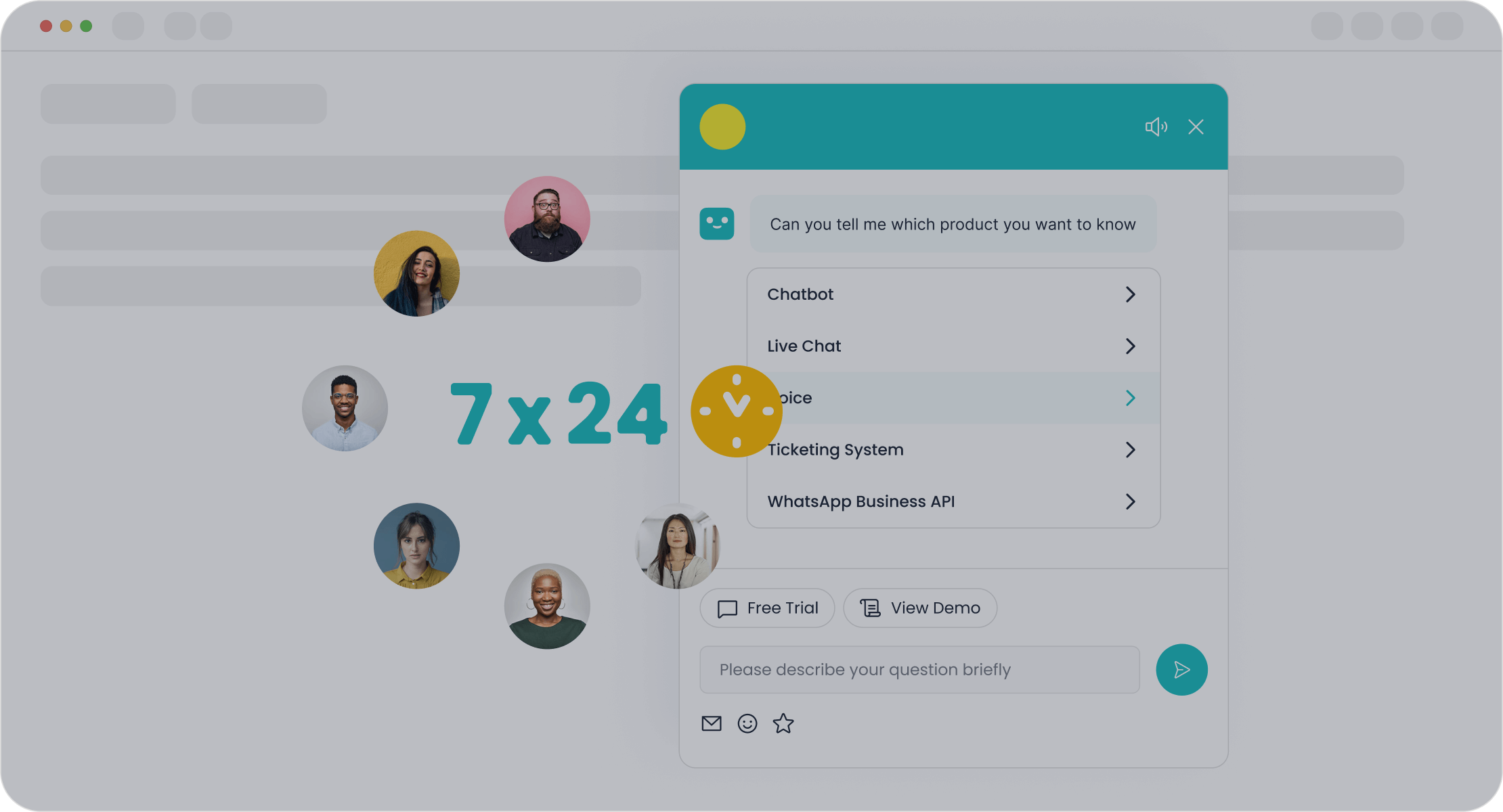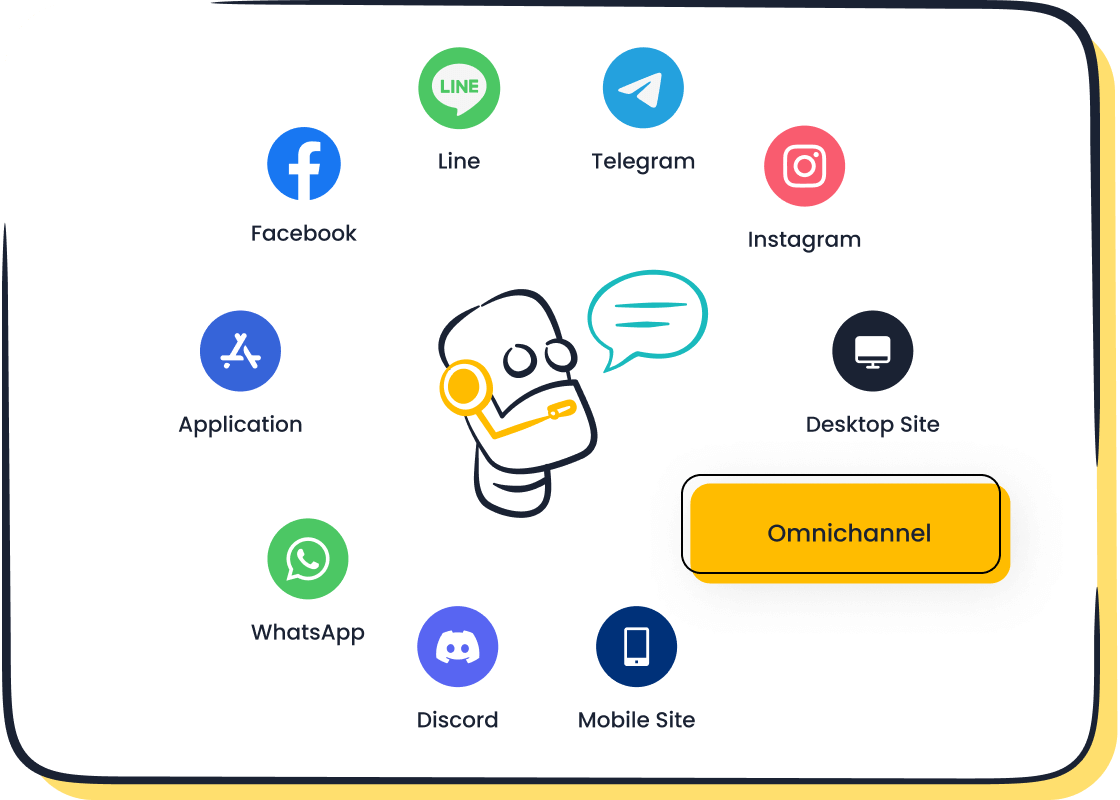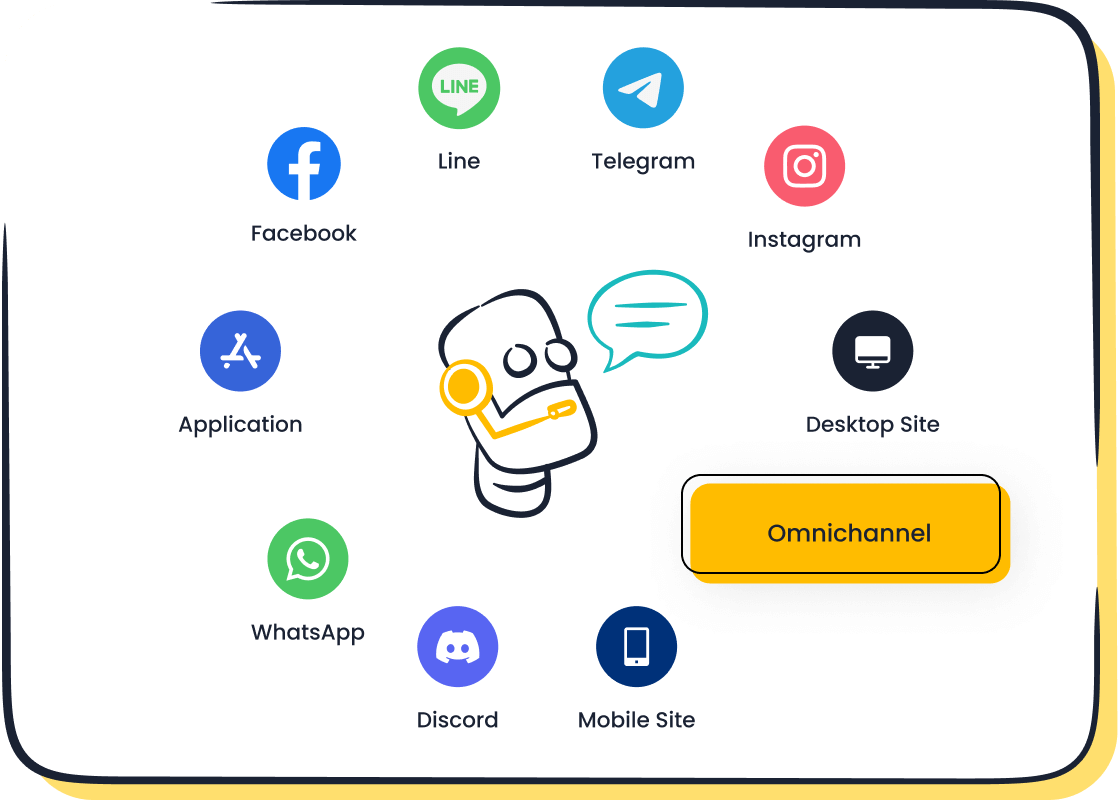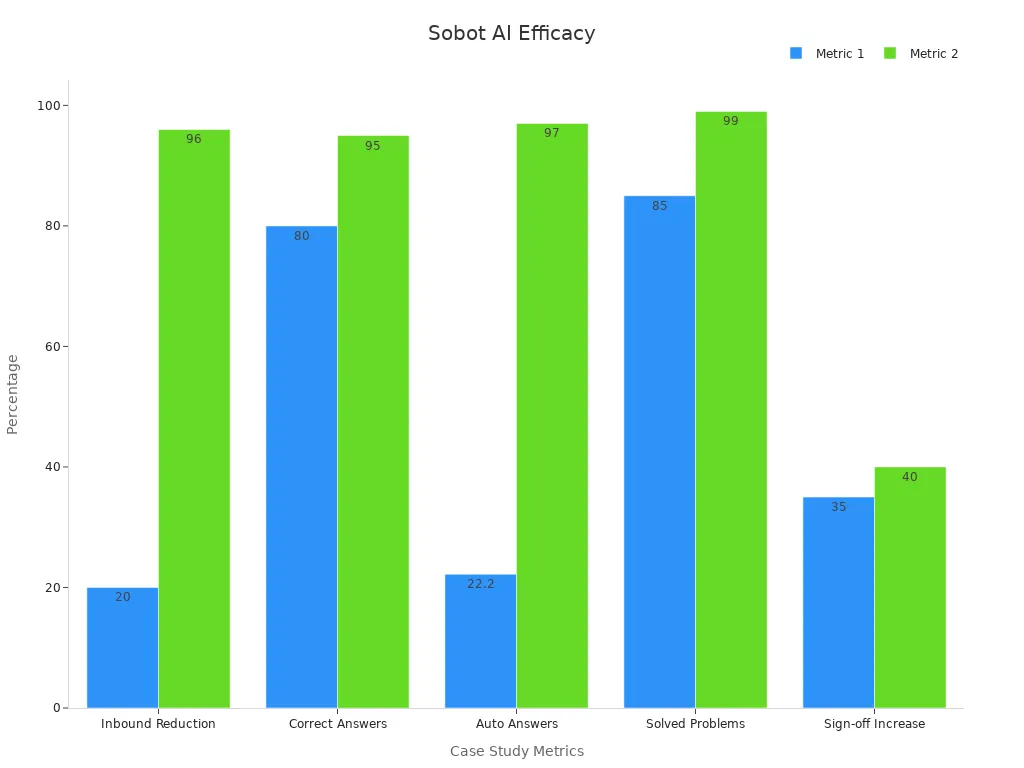Chatbot Use Cases in Singapore's Evolving Business Landscape

Businesses in Singapore are embracing chatbots to revolutionize customer interactions. Nearly 50% of IT professionals have reported an accelerated adoption of AI tools like chatbots post-pandemic. These tools are not only transforming service experiences but also projected to save $8 billion globally by 2023. In Singapore, 80% of companies plan to adopt AI chatbots soon, with 43% already using them to reduce support costs by up to 30%.

Sobot, a leader in chatbot solution singapore, offers advanced ai chatbot solutions that enhance brand perception and operational efficiency. Its AI chatbot operates 24/7, providing seamless and multilingual customer support. By integrating Sobot’s chatbot, businesses can elevate their customer service while cutting costs and boosting engagement.
The Chatbot Landscape in Singapore

Market Growth and Adoption Trends
The adoption of ai chatbots in Singapore has grown rapidly in recent years. Businesses of all sizes are leveraging these tools to improve customer interactions and streamline operations. Among small and medium-sized businesses (SMBs), 94% are either using or experimenting with AI technologies, including chatbots. This trend highlights the increasing reliance on automation to stay competitive.
You might find it interesting that 87% of SMBs using AI report revenue growth, while 75% experience higher productivity. Chatbots play a significant role in these outcomes by automating repetitive tasks like answering FAQs and managing customer inquiries. Key use cases include optimizing marketing campaigns, prioritizing leads, and providing 24/7 customer support. These trends demonstrate how chatbots in Singapore are becoming essential for businesses aiming to enhance efficiency and customer satisfaction.
Government Support for AI and Automation
Singapore’s government actively supports the adoption of ai chatbots and other AI technologies. The National Artificial Intelligence Strategy, launched in 2019, aims to position Singapore as a global leader in AI by 2030. This initiative focuses on developing impactful AI solutions across various sectors. Programs like AI Singapore, started in 2017, nurture local talent and enhance AI capabilities.
You can also benefit from government grants like the AI and Data Analytics Grant, which promotes AI adoption in financial institutions. Ethical AI deployment is another priority. The Personal Data Protection Commission’s Model AI Governance Framework provides clear guidelines for businesses. These efforts ensure that AI technologies, including chatbots, are implemented responsibly and effectively.
Key Drivers of Chatbot Adoption in Singapore
Several factors drive the growing adoption of ai chatbots in Singapore. First, the demand for personalized customer experiences has increased. Chatbots can provide tailored responses based on customer preferences, enhancing engagement. Second, businesses face pressure to operate efficiently. Chatbots reduce costs by handling high volumes of inquiries without additional staff.

Another driver is the multilingual capability of modern chatbots. In a diverse country like Singapore, this feature allows businesses to serve customers in their preferred languages. For example, Sobot’s AI chatbot offers 24/7 multilingual support, making it easier for businesses to connect with their audience. These advantages make chatbots indispensable for companies looking to improve customer service and operational efficiency.
Industry-Specific Use Cases of Chatbots in Singapore

Chatbots in Healthcare: Enhancing Patient Support
Chatbots are transforming healthcare by improving patient care and engagement. In Singapore, these tools address challenges like overcrowded emergency departments and limited access to medical advice. For example, pediatric medical chatbots provide real-time guidance to parents, helping them make informed decisions about their child’s health. This reduces unnecessary visits to emergency rooms and enhances health literacy among caregivers.

You can also see chatbots assisting with appointment scheduling, medication reminders, and symptom checks. These features save time for both patients and healthcare providers. Sobot’s AI chatbot offers multilingual support, making it easier for diverse communities in Singapore to access healthcare services. Its 24/7 availability ensures patients receive timely assistance, even during off-hours.
By automating routine tasks, chatbots allow healthcare professionals to focus on critical cases, improving overall efficiency and patient satisfaction.
Chatbots in Retail and E-commerce: Driving Sales and Engagement
The retail and e-commerce sectors in Singapore are leveraging chatbots to enhance customer experiences and boost sales. These tools provide instant responses to customer inquiries, reducing wait times and improving engagement. For instance, an electronics retailer in Singapore implemented a chatbot to streamline customer service by offering product recommendations and answering FAQs.
Chatbots also play a crucial role in reducing cart abandonment. They send proactive reminders and personalized offers to customers, encouraging them to complete their purchases. The global chatbot market, valued at $5.1 billion in 2023, is expected to grow at a CAGR of 24.4% through 2032. This growth highlights the increasing reliance on chatbots for driving sales and engagement.

Sobot’s AI chatbot stands out with its ability to integrate across multiple channels, including WhatsApp and SMS. It uses smart self-service and real-time intent assistance to boost conversions by 20%. By adopting such solutions, you can not only improve customer satisfaction but also achieve significant cost savings.
Chatbots in Financial Services: Streamlining Customer Interactions
In Singapore’s financial sector, chatbots are enhancing customer interaction efficiency. These tools handle high volumes of inquiries, such as account balances, transaction histories, and loan applications, without requiring human intervention. This reduces wait times and improves the overall customer experience.
Text-based chatbots also address external challenges like regulatory compliance and data security. They provide accurate, consistent information, building trust among users. Research shows that chatbots in financial services improve customer perceptions and foster stronger relationships between clients and institutions.

Sobot’s AI chatbot offers advanced features like multilingual support and seamless integration with existing systems. It ensures compliance with data protection regulations, making it a reliable choice for financial institutions. By implementing such solutions, you can enhance operational efficiency while maintaining high standards of customer service.
Chatbots in Public Services: Improving Accessibility and Efficiency
Chatbots are transforming public services in Singapore by making them more accessible and efficient. These tools help government agencies handle large volumes of inquiries, reducing wait times and improving citizen satisfaction. For example, Singapore's Government Technology Agency introduced a generative AI chatbot called Pairchatbot. This tool assists 4,000 civil servants with tasks like writing, research, and coding. The government plans to expand its use to 150,000 public sector employees, showcasing the scalability of chatbot solutions.
Public-facing chatbots also play a vital role in enhancing citizen services. Singapore is replacing its existing 'Ask Jamie' chatbot with a more advanced assistant powered by large language models (LLMs). This upgrade aims to provide faster and more accurate responses to public queries. By automating routine tasks, chatbots free up human resources for more complex responsibilities, ensuring better service delivery.
Sobot's AI chatbot offers a robust solution for public services. Its multilingual capabilities make it ideal for Singapore's diverse population. The chatbot operates 24/7, ensuring citizens receive timely assistance regardless of the hour. With features like knowledge base integration and real-time intent recognition, Sobot's chatbot can handle a wide range of inquiries efficiently. These use cases highlight how chatbots can revolutionize public services by improving accessibility and operational efficiency.
Tip: Implementing chatbots in public services not only enhances user experience but also reduces operational costs, making it a win-win for both citizens and government agencies.
Chatbots in Tourism and Hospitality: Elevating Customer Experiences
The tourism and hospitality sector in Singapore relies on chatbots to deliver exceptional customer experiences. These tools provide personalized assistance, helping guests with tasks like booking reservations, checking availability, and answering FAQs. Research shows that AI chatbots enhance guest engagement by offering 24/7 support and tailored recommendations. This level of service boosts customer satisfaction and loyalty, which are critical metrics in the hospitality industry.
Chatbots also improve operational efficiency by automating repetitive tasks. For instance, a hotel chatbot can handle room service requests or provide local travel tips, allowing staff to focus on more complex guest needs. This not only enhances the guest experience but also optimizes resource allocation.

Sobot's AI chatbot stands out in this sector with its ability to integrate across multiple channels, including WhatsApp and SMS. It uses smart self-service features to guide customers through their journey, from initial inquiries to post-stay feedback. By leveraging Sobot's chatbot, businesses in tourism and hospitality can elevate their service standards while reducing operational costs.
Note: As customer expectations continue to rise, adopting chatbots can give your business a competitive edge in the tourism and hospitality industry.
Benefits of Chatbot Adoption in Singapore
Enhancing Customer Service and Support
Chatbots are revolutionizing customer service in Singapore by providing instant, accurate responses to customer inquiries. These tools operate 24/7, ensuring your customers receive support whenever they need it. This constant availability reduces wait times and enhances customer satisfaction. For example, Sobot’s AI chatbot offers multilingual support, making it easier for businesses to connect with Singapore’s diverse population. By automating routine tasks like answering FAQs, chatbots free up your team to focus on more complex issues.
A study involving 500 customers who used AI-enabled chatbots revealed that the quality of AI services and the human-like traits of chatbots significantly improved the online customer experience. This improvement fostered emotional connections with brands, leading to stronger brand loyalty. When you adopt chatbots, you not only enhance customer service but also build lasting relationships with your audience.
Tip: Implementing chatbots can help you handle high volumes of inquiries efficiently, ensuring your customers always feel valued.
Improving Operational Efficiency and Scalability
Chatbots streamline operations by automating repetitive tasks, allowing your business to scale without increasing costs. These tools handle large volumes of customer interactions, reducing the workload on your team. For instance, Sobot’s AI chatbot improves productivity by 70% by autonomously solving regular queries. This efficiency enables your team to focus on strategic initiatives rather than routine tasks.
Here’s how chatbots improve operational efficiency:
- They provide personalized 24/7 support, ensuring your customers always have access to assistance.
- They streamline interactions between your business and customers, reducing response times.
- They offer a level of assistance that is both efficient and tailored to individual needs.
By integrating chatbots into your operations, you can achieve significant cost savings while maintaining high-quality customer support. This scalability ensures your business can grow without compromising customer satisfaction.
Driving Personalization and Customer Engagement
Personalization is key to building strong customer relationships, and chatbots excel in this area. These tools analyze customer data to deliver tailored responses, creating personalized interactions that resonate with your audience. For example, UOB uses AI to analyze customer behavior in real-time, offering financial products that match individual needs. Similarly, DBS Bank’s virtual assistant handles over 82% of customer queries, providing personalized service that improves response times.
Sobot’s AI chatbot takes personalization to the next level with features like real-time intent recognition and proactive messaging. These capabilities boost customer engagement by 20%, helping you convert more leads into loyal customers. Additionally, NTUC FairPrice uses AI-powered chatbots to provide instant support, enhancing customer satisfaction and operational efficiency.
Note: Personalization not only improves customer engagement but also strengthens brand loyalty, giving your business a competitive edge.
Cost Savings and Business Growth
Chatbots are transforming the way businesses in Singapore achieve cost savings and drive growth. By automating repetitive tasks, these tools reduce the need for additional staff, allowing you to allocate resources more effectively. For instance, chatbots can handle high volumes of customer inquiries, such as FAQs or order tracking, without requiring human intervention. This efficiency not only lowers operational costs but also improves response times, enhancing customer satisfaction.
In the banking, financial services, and insurance (BFSI) sectors, the adoption of chatbots is on the rise. Businesses in these industries face increasing customer expectations for immediate support. Chatbots meet this demand by providing instant, accurate assistance, which helps streamline operations and reduce costs. They also enhance customer engagement, a critical factor for driving business growth. For example, financial institutions use chatbots to assist with loan applications, account management, and transaction histories, ensuring seamless interactions while cutting expenses.
Sobot’s AI chatbot offers a robust solution for businesses aiming to achieve these benefits. It operates 24/7, autonomously solving regular queries and assisting agents, which improves productivity by 70%. By triaging inquiries around the clock, it saves up to 50% on additional staffing costs. Moreover, its smart self-service features and proactive messaging boost conversions by 20%, directly contributing to revenue growth. These capabilities make Sobot’s chatbot an invaluable tool for businesses looking to optimize their operations and scale efficiently.
The retail and e-commerce sectors also benefit significantly from chatbot deployment. These industries often face challenges like cart abandonment and high customer service demands. Chatbots address these issues by sending personalized reminders and offering tailored product recommendations. This approach not only reduces cart abandonment rates but also increases sales. For example, a Singapore-based retailer using Sobot’s chatbot reported a 30% increase in leads while cutting service costs. Such results demonstrate how chatbots can drive both cost savings and business growth.
Did you know? The global chatbot market is growing rapidly, with industries like BFSI and retail leading the way. This trend highlights the increasing reliance on chatbots to enhance efficiency and profitability.
By integrating chatbots into your business, you can achieve measurable cost savings and unlock new growth opportunities. Whether you aim to reduce operational expenses, improve customer engagement, or scale your services, chatbots provide a cost-effective and scalable solution. Sobot’s AI chatbot, with its multilingual support and no-coding-required setup, ensures that businesses of all sizes can harness these benefits effortlessly.
Overcoming Challenges in Chatbot Implementation
Addressing Data Privacy and Security Concerns
Data privacy and security remain critical challenges when implementing chatbots. Users often share sensitive information, such as personal details or financial data, during interactions. Businesses must ensure this data is handled securely to build trust and comply with regulations like Singapore’s Personal Data Protection Act (PDPA). For example, robust encryption and continuous backups are essential to protect user information from breaches.
You may also face challenges in managing sensitive data across multiple platforms. Ensuring that your chatbot operates securely on channels like WhatsApp or SMS requires advanced security measures. Sobot’s AI chatbot addresses these concerns with features like GDPR compliance and encrypted backups, ensuring your customer data remains safe. By prioritizing security, you can foster trust and encourage users to engage with your chatbot confidently.
Tip: Regularly update your chatbot’s security protocols to stay ahead of potential threats and maintain compliance with evolving regulations.
Ensuring Seamless Integration with Existing Systems
Integrating a chatbot with your existing systems can be complex. Many businesses struggle to maintain context across platforms, which is crucial for delivering personalized interactions. For instance, users may switch between your website and social media channels, expecting the chatbot to retain their conversation history. This continuity enhances user experience and builds loyalty.
Sobot’s AI chatbot simplifies integration with its omnichannel support. It connects seamlessly with platforms like WhatsApp, email, and SMS, ensuring consistent interactions. Additionally, it uses a knowledge base to provide accurate responses, even when users switch platforms. By adopting such solutions, you can streamline operations and improve customer satisfaction.
Did you know? Companies that integrate chatbots successfully report a 70% improvement in operational efficiency, highlighting the importance of seamless system integration.
Training Chatbots for Local Context and Multilingual Support
Training your chatbot to handle local contexts and multiple languages is essential in a diverse market like Singapore. Users expect culturally relevant and linguistically accurate responses. For example, the SEA-IFEval benchmark ensures cultural authenticity by involving native speakers in chatbot training. Similarly, the SEA-MTBench benchmark uses realistic, multi-turn scenarios to evaluate chatbot performance.
Sobot’s AI chatbot excels in this area with its multilingual capabilities. It supports languages commonly spoken in Singapore, such as English, Mandarin, and Malay, ensuring inclusivity. By leveraging cultural and linguistic authenticity, you can enhance user engagement and make your chatbot more relatable to your audience.
Note: Incorporating local context into your chatbot’s training not only improves user experience but also strengthens your brand’s connection with the community.
Building Trust and Overcoming Resistance to Automation
Building trust in automation, especially chatbots, requires addressing user concerns and fostering confidence. Many people hesitate to embrace automation due to fears of intrusion or losing the human touch. You can overcome these barriers by focusing on transparency, engagement, and education.
A study on consumer behavior highlights three key factors influencing trust and resistance to automation:
| Key Findings | Description |
|---|---|
| Consumer Resistance | Perceived intrusion negatively impacts engagement and overall well-being. |
| Technology Anxiety | Addressing anxiety improves consumer trust and engagement. |
| Consumer Engagement | Engagement reduces resistance and enhances overall satisfaction. |
To reduce resistance, you should ensure your chatbot operates transparently. Clearly communicate how it uses data and respects privacy. For example, Sobot’s AI chatbot complies with data protection regulations like Singapore’s PDPA. Its encrypted backups and GDPR compliance reassure users that their information is secure.
Engagement plays a crucial role in overcoming resistance. Chatbots that provide personalized, meaningful interactions foster trust. Sobot’s chatbot excels in this area by offering multilingual support and real-time intent recognition. These features make users feel understood and valued, reducing hesitation to interact with automation.
Education is another powerful tool. When users understand how chatbots work and their benefits, they feel more comfortable using them. You can introduce your chatbot with simple tutorials or FAQs to guide users through its features. Sobot’s no-coding-required setup ensures businesses can easily customize chatbots to meet user needs, further enhancing trust.
By addressing concerns like privacy, engagement, and education, you can build trust and encourage users to embrace automation. A well-designed chatbot not only improves customer satisfaction but also strengthens your brand’s reputation.
Practical Tips for Implementing Chatbots in Singapore
Choosing the Right Chatbot Solution in Singapore
Selecting the right chatbot solution can significantly impact your business outcomes. Start by identifying your specific needs. Do you require 24/7 customer support, multilingual capabilities, or integration with existing systems? Solutions like Sobot’s AI chatbot offer these features, making them ideal for businesses in Singapore. Its no-coding-required setup ensures that even non-technical teams can deploy it effortlessly.
When evaluating options, prioritize features that enhance customer interactions. For example, sentiment analysis measures the emotional tone of customer queries, enabling tailored responses. Bot analytics provides insights into usage patterns, helping you optimize performance. Fallback options ensure that complex queries are redirected to human agents, maintaining a seamless user experience.
| Feature | Description | Benefits |
|---|---|---|
| Sentiment Analysis | Measures the emotional tone behind customer queries. | Improves understanding of customer emotions, leading to better service. |
| Bot Analytics | Collects data on chatbot usage and interaction patterns. | Enables continuous improvement in performance and customer interaction. |
| Fallback Options | Redirects complex queries to human agents. | Ensures personalized support for intricate or sensitive requests. |
By focusing on these features, you can choose a chatbot solution that aligns with your business goals and enhances customer satisfaction.
Ensuring Compliance with Data Protection Regulations
Compliance with data protection regulations is crucial when implementing chatbots in Singapore. The Personal Data Protection Act (PDPA) requires businesses to handle customer data responsibly. Guidelines on Personal Data in AI emphasize the importance of user consent and outline exceptions for business improvement and research. Adhering to these guidelines ensures that your chatbot operates ethically and legally.
Sobot’s AI chatbot addresses these concerns with features like GDPR compliance and encrypted backups. These measures protect sensitive customer information and build trust. Regularly updating your chatbot’s security protocols further ensures compliance and safeguards against potential breaches.
Tip: Always inform users about how their data will be used. Transparency fosters trust and encourages engagement with your chatbot.
Leveraging Sobot AI Chatbot for Enhanced Customer Interactions
Sobot’s AI chatbot offers a comprehensive solution for businesses aiming to improve customer interactions. It operates 24/7, providing instant support across multiple channels like WhatsApp and SMS. Its multilingual capabilities make it ideal for Singapore’s diverse population. By automating routine tasks, it allows your team to focus on more complex issues.
The chatbot’s impact is evident in its performance metrics. For example, it has achieved an 85% problem resolution rate and a 99% customer satisfaction score. Additionally, it reduces inbound discussion volume by 20% and increases positive feedback to over 96%. These results demonstrate its ability to enhance customer experiences while optimizing operational efficiency.

By leveraging Sobot’s AI chatbot, you can deliver personalized, efficient, and secure customer interactions, setting your business apart in Singapore’s competitive market.
Measuring Success and Continuously Optimizing Performance
Measuring the success of your chatbot is essential for ensuring it delivers value to your business. Tracking key performance metrics helps you understand how well your chatbot is performing and identify areas for improvement. By continuously optimizing its functionality, you can enhance customer satisfaction and operational efficiency.
Start by monitoring metrics that reflect user engagement and chatbot effectiveness. For example, tracking the total number of users shows how many people your chatbot reaches, while the number of engaged users highlights active interactions. Measuring chat volume helps you assess demand and usage patterns, ensuring your chatbot can handle peak times effectively. Additionally, the goal completion rate (GCR) evaluates how well your chatbot guides users to complete desired actions, such as making a purchase or resolving an issue.
Here’s a table summarizing key metrics to track:
| Metric | Description |
|---|---|
| Total number of users | Measures the overall reach of the chatbot. |
| Engaged users | Indicates how many users are actively interacting with the chatbot. |
| Number of new users | Tracks the growth of the user base engaging with the chatbot. |
| Chat volume | Reflects the total interactions, helping to assess demand and usage patterns. |
| Goal completion rate (GCR) | Evaluates how effectively the chatbot is guiding users to complete desired actions. |
| Customer satisfaction KPI | Assesses user satisfaction through feedback mechanisms like yes/no questions or ratings. |
To optimize performance, analyze these metrics regularly. For instance, if your chatbot’s GCR is low, consider refining its workflows or adding more intuitive prompts. Feedback from customer satisfaction surveys can also guide improvements. Sobot’s AI chatbot simplifies this process by offering detailed analytics and reporting tools. These features allow you to identify gaps in performance and make data-driven adjustments.
Continuous optimization ensures your chatbot evolves with user needs. For example, updating its knowledge base or training it to handle new scenarios can improve resolution rates. Sobot’s chatbot supports multilingual capabilities, making it ideal for Singapore’s diverse audience. By leveraging these features, you can ensure your chatbot remains effective and relevant.
Tip: Regularly review your chatbot’s metrics and update its functionalities to keep pace with changing customer expectations. This proactive approach enhances user experience and maximizes business impact.
Chatbots are reshaping Singapore’s business landscape by enhancing customer service, streamlining operations, and driving growth. Across industries, these tools automate routine tasks, improve productivity, and reduce costs. For example, chatbots in technology sectors boost customer satisfaction, while those in operations increase efficiency. Studies show AI could double economic growth rates by 2035, further solidifying its transformative potential.
Sobot plays a pivotal role in this evolution. Its AI chatbot offers 24/7 multilingual support, seamless integration, and cost-effective solutions tailored to diverse industries. By adopting Sobot’s chatbot, you can elevate customer interactions, optimize resources, and expand your market reach.
Now is the time to embrace chatbots as a tool for innovation. They not only enhance efficiency but also position your business for long-term success in Singapore’s competitive market.
FAQ
What is a chatbot, and how does it work?
A chatbot is a software application that interacts with users through text or voice. It uses AI to understand queries and provide responses. For example, Sobot’s chatbot operates 24/7, offering multilingual support and automating routine tasks to improve customer service efficiency.
How can chatbots benefit businesses in Singapore?
Chatbots help businesses save costs, improve customer engagement, and streamline operations. They handle inquiries instantly, reducing wait times. Sobot’s chatbot boosts productivity by 70% and cuts expenses by up to 50%, making it ideal for businesses aiming to scale efficiently.
Are chatbots secure for handling sensitive data?
Yes, chatbots can be secure when designed properly. Sobot’s chatbot complies with GDPR and Singapore’s PDPA, ensuring encrypted backups and data protection. This builds trust and encourages users to share information confidently.
Can chatbots support multiple languages?
Absolutely! Chatbots like Sobot’s offer multilingual capabilities, enabling businesses to serve diverse audiences. In Singapore, this feature is crucial for connecting with customers who speak English, Mandarin, Malay, or Tamil.
How do you measure the success of a chatbot?
You measure success by tracking metrics like user engagement, chat volume, and goal completion rates. Sobot’s chatbot provides detailed analytics, helping businesses optimize performance and improve customer satisfaction.
See Also
Simple Ways to Integrate Chatbots on Your Website
Enhancing Customer Experience in E-commerce with Chatbots
Selecting the Ideal Chatbot Software for Your Needs